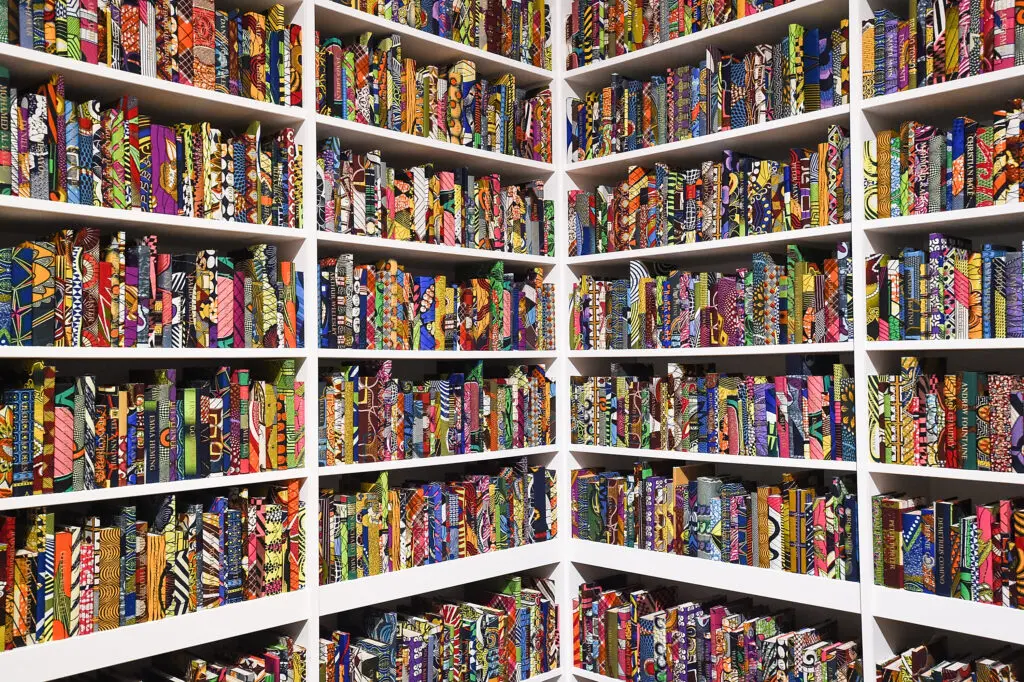Can Anthropology Be Decolonized?

The COVID-19 pandemic, along with the Black Lives Matter movement, have exposed the deep inequities and inadequacies of our social systems at a massive scale in the United States and elsewhere. These global upheavals have made many people rethink their priorities and values across nearly every aspect of life, from work to interpersonal relationships to politics.
These wider changes have also compelled many scholars and researchers who devote their careers to studying human society—including anthropologists—to think critically about the academic institutions they are a part of and about their own research and why it matters.
Over the last few years, anthropology’s theoretical and philosophical foundations, knowledge claims, and methods have all been deeply challenged. In the U.S., the discovery of human remains still in the possession of the University of Pennsylvania’s Museum of Archaeology and Anthropology raised questions about anthropology’s deeply troubling legacies of promoting scientific racism and justifying colonialism. Various sexual harassment cases against high-profile anthropologists have provoked a reckoning with how elite patronage networks within academia allow systemic abuse to continue.
Many anthropologists have been energized by renewed calls to decolonize the discipline. But others have dug in their heels, maintaining their investments in the ways the discipline has historically been practiced and institutionalized. [1] [1] See, for example, the controversy generated around the 2021 address on “Decolonizing U.S. Anthropology” by Akhil Gupta, the outgoing president of the American Anthropological Association, at an annual meeting of fellow anthropologists in Baltimore, Maryland.
In response to these ongoing controversies and conversations, we have organized this special series to explore how anthropologists are attempting to reconceptualize the discipline so that it might generate more radically inclusive and just possibilities for human life. This series is part of a broader effort, partially funded by the Wenner-Gren Foundation (SAPIENS’ publisher), to develop a concept we call “radical humanism.”
By asking about the foundational tenets of humanism, we are ultimately asking: Who is “the human” at the heart of anthropology?
WHAT IS HUMANISM?
To explain why we call for a radical humanism, we’ll start by unpacking what humanism, as a Western philosophy, claims about what it means to be human.
Humanism is commonly thought of as a secular worldview that prioritizes human freedom, democracy, and reason over religious devotion and rule. The American Humanist Association defines it as a “progressive philosophy of life that, without theism or other supernatural beliefs, affirms our ability and responsibility to lead ethical lives of personal fulfillment that aspire to the greater good.” Humanism is foundational to modern legal and political ideas of the liberal subject, or the idea that human beings are individuals entitled to specific rights and liberties.
While that definition may seem innocuous, the roots of philosophical humanism are far more fraught. Humanism emerged alongside the Copernican Revolution and the European Renaissance of the 14th to 17th centuries. Its European proponents wanted to dislodge the role of religious institutions and thought, particularly theological conceptualizations of causality, in favor of reason and rationality. They saw freedom of thought as key to developing a new idea of “Man” as a secular political subject. But in doing so, they also claimed White, masculine, European views of the world as universally true and superior to all other possible views.
Who is “the human” at the heart of anthropology?
This view of humanity coincided with European expansionism to the Americas starting in the 15th century. Haitian American anthropologist Michel-Rolph Trouillot argued this expansion created another category of humanity that remains fundamental to modern Western thinking: the “savage.” [2] [2] Trouillot originally published the essay “Anthropology and the Savage Slot” in an edited volume in 1991, then later revised it.
This imagined “Other”—whether feared, pitied, or romanticized—served as a consistent foil for Europeans’ conceptions of their own humanity. This oppositional thinking of self versus Other was evident in the evangelizing mission of the Christian church, the imperializing mission of the state, and the extracting mission of emergent capitalism and plantation-based agriculture. The primary mechanism of this Othering was race: a secular tool of domination that structured global inequalities, disregarded Indigenous forms of knowledge, and justified slavery.
Jamaican writer and cultural theorist Sylvia Wynter refers to the myriad processes justified by humanism as “coloniality.” This term, for Wynter, describes not only the physical takeover of one group by another by colonizing a land and people, but also a whole system of creating knowledge: notions of value, politics, hierarchy, and universalism, among others. For Wynter, like Trouillot, the universalism of humanism requires an externally oriented framework for thinking about the self in contrast to an Other.
European humanism ultimately laid the groundwork for the central contradictions that we see in the U.S. and other liberal democracies today: the valuing and protection of freedom and human rights alongside a violent history of enslavement and other forms of unjust labor, imperialism, and environmental exploitation through the separation of nature and culture. The core of humanism, therefore, is not the noble protection of human freedom from religion but a secular imperialism grounded in white supremacy.
A RADICALLY HUMANIST ANTHROPOLOGY?
By drawing attention to the diverse practices of people around the world, anthropology—and its foundational principle of cultural relativism—has offered one way to destabilize European universalisms. However, the discipline has nevertheless perpetuated the idea that a comparative, scientific approach will produce generalizable knowledge about humans that could become legible to Western audiences.
In theory and in practice, anthropology has often devalued ways of knowing, being, and claiming humanity that do not fit into a European humanist model. To offer two concrete examples: Academic gatekeepers—such as tenured professors and administrators at universities, journal editors, and museum curators, among others—have often ensured the success of White, male fieldworkers, while ignoring the contributions of local and/or amateur researchers. They have also placed a primacy on English language scholarship and on written texts as opposed to oral, visual, or other modes of communicating and storytelling. This limits whose voices are valued and uplifted in the field and fails to recognize other ways people around the world express themselves and create knowledge.
Today, as scholars, we remain unsettled with anthropology’s place in the world and the work needed to reckon with its past. When we invited scholars to write for this special series for SAPIENS, we were envisioning the collection as a call for anthropology to adopt radically humanist practices and conventions as a way to be accountable to a past and present in which the field has enabled—and in many cases, solidified—processes of dispossession, racism, and other forms of exclusion and harm.
To consider these legacies and processes, we wanted to center the work of critical scholars of color who engage in anti/decolonial efforts within and outside of academic institutions. We asked the contributors to respond to the questions: Can anthropology be decolonized? And, if so, what should a 21st-century anthropology look like?
We are pleased to present this collection of reflections that together tease out and confront these questions.
REBUILDING ANTHROPOLOGY
We share our colleagues’ challenges to the discipline of anthropology and call for rebuilding the field anew.
One key part of this effort is realizing that reconsidering humanism is not just about decolonizing anthropology for the sake of the discipline. It means reshaping the problematic foundational ideas at the heart of most of our existing social and political structures: ideas of what it means to be human and who counts as a liberal subject.
We all must consider who is included or excluded from the narrow individualistic, rights-based version of humanity that humanism supports—and lay the foundation for ways of thinking and acting that put justice and equity at the center.




























